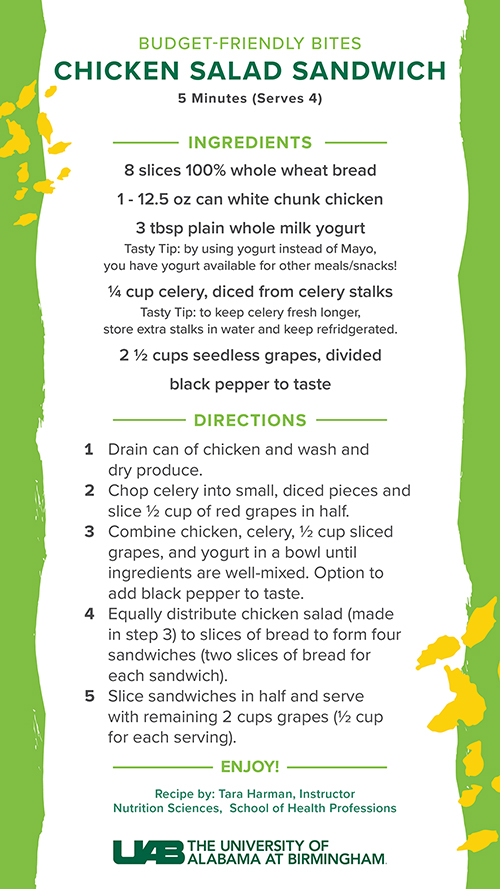 Uncertainties related to the conflict in Europe, supply chain issues and more continue to drive up the cost of groceries; but eating healthy does not have to cost you an arm and a leg.Uncertainties related to the conflict in Ukraine, supply chain issues and more continue to drive up the cost of groceries. But University of Alabama at Birmingham nutrition experts say eating healthy does not have to cost you an arm and a leg.
Uncertainties related to the conflict in Europe, supply chain issues and more continue to drive up the cost of groceries; but eating healthy does not have to cost you an arm and a leg.Uncertainties related to the conflict in Ukraine, supply chain issues and more continue to drive up the cost of groceries. But University of Alabama at Birmingham nutrition experts say eating healthy does not have to cost you an arm and a leg.
“It’s hard for anyone to change their usual grocery shopping and food habits in a flash, but the price of food is forcing all of us to reconsider how and what we’re eating,” said Tara Harman, an instructor with the UAB Department of Nutrition Sciences. “If you’re on a tight budget, buying in bulk so you’re making fewer trips to the grocery store might seem like an impossible or simply unreasonable ask.”
Harman says preparing a shopping list in advance that balances non-perishable (canned or frozen) and perishable food items (dairy products and fresh produce) and aims to repurpose ingredients for multiple meals can help.
“For example, rather than relying on deli cuts of meat to make sandwiches during the day, consider buying less perishable — and also less expensive — foods like canned white meat chicken to make chicken salad for sandwiches,” she said. “Dry chicken salad is the worst, so rather than forgoing mayonnaise to save money, purchase whole milk yogurt instead.”
Harman says yogurt is versatile, and she recommends serving it for breakfast or a snack.
“Still in the spirit of less perishable, less expensive items, you can top it with sliced peaches from a can to add a little more flavor and nutrition,” Harman said.
 Click image to enlarge.Riley Thornton, UAB Employee Wellness manager, says if you have a recipe that calls for quinoa, consider whole grain rice if it is a cheaper grain to purchase.
Click image to enlarge.Riley Thornton, UAB Employee Wellness manager, says if you have a recipe that calls for quinoa, consider whole grain rice if it is a cheaper grain to purchase.
“For a recipe that calls for a particular vegetable, see if you can substitute a more seasonal option that may be less expensive,” Thornton said.
Megan Ferrell Word, a clinical dietitian with UAB Weight Loss Medicine, says grabbing things that are on sale or in season is a best practice when looking to get the best bang for your buck.
“There’s also nothing wrong with buying frozen produce,” Word said.
Word adds that having a plan, not to be confused with meal planning, is a simple but important step in saving on your grocery bill.
“Meal planning is not sustainable for most people, so buying items from each food group when shopping is a better way to plan your trip to the store,” Word said.
Word says a balanced plate typically means that half of your plate should contain non-starchy vegetables and the rest of your plate should have equal portions of whole grains and protein.
“It’s important to monitor your portions,” Word said. “Sometimes it is not what we are eating, but how much. Serving the proper amounts at meals can be helpful.”